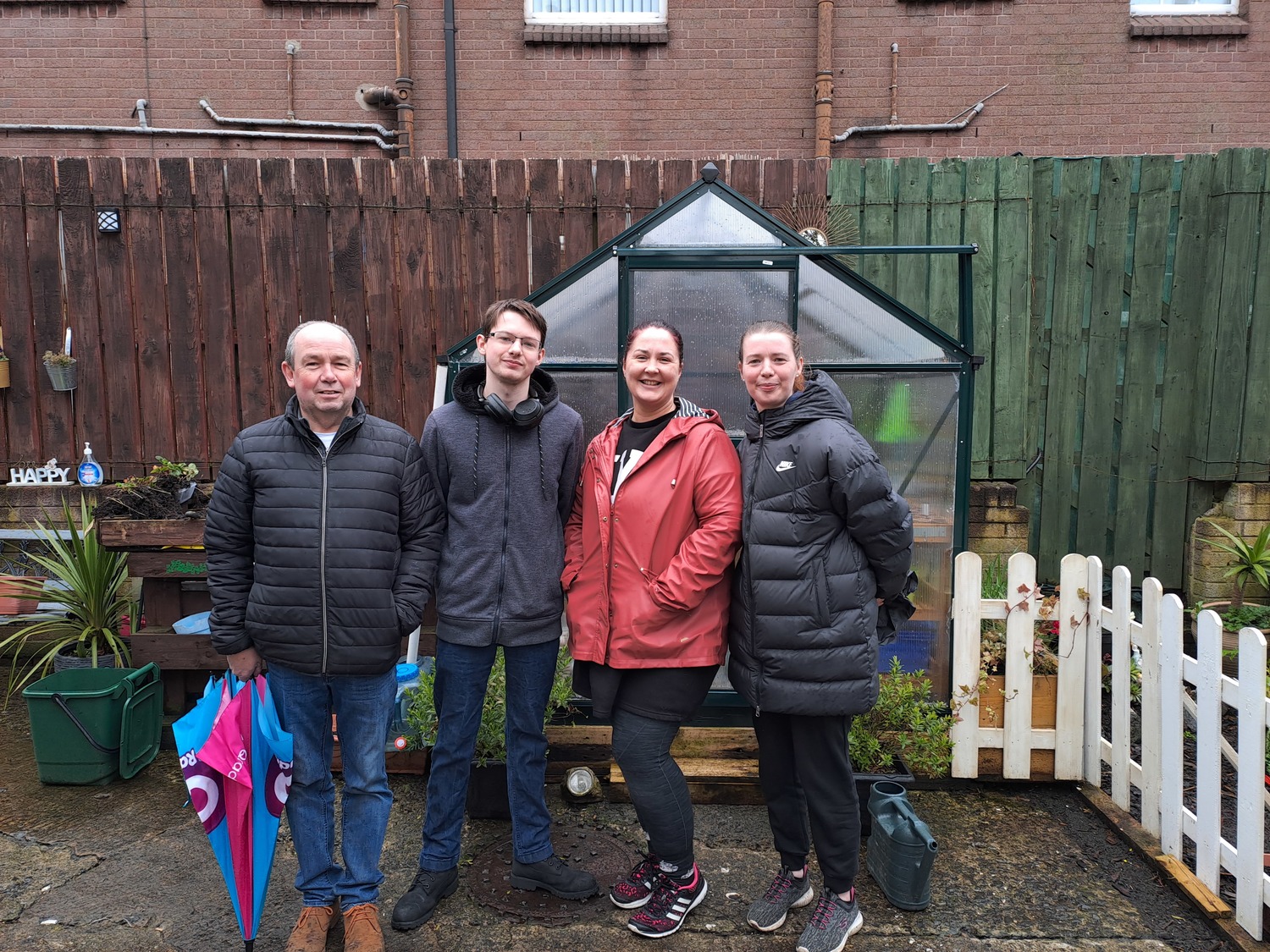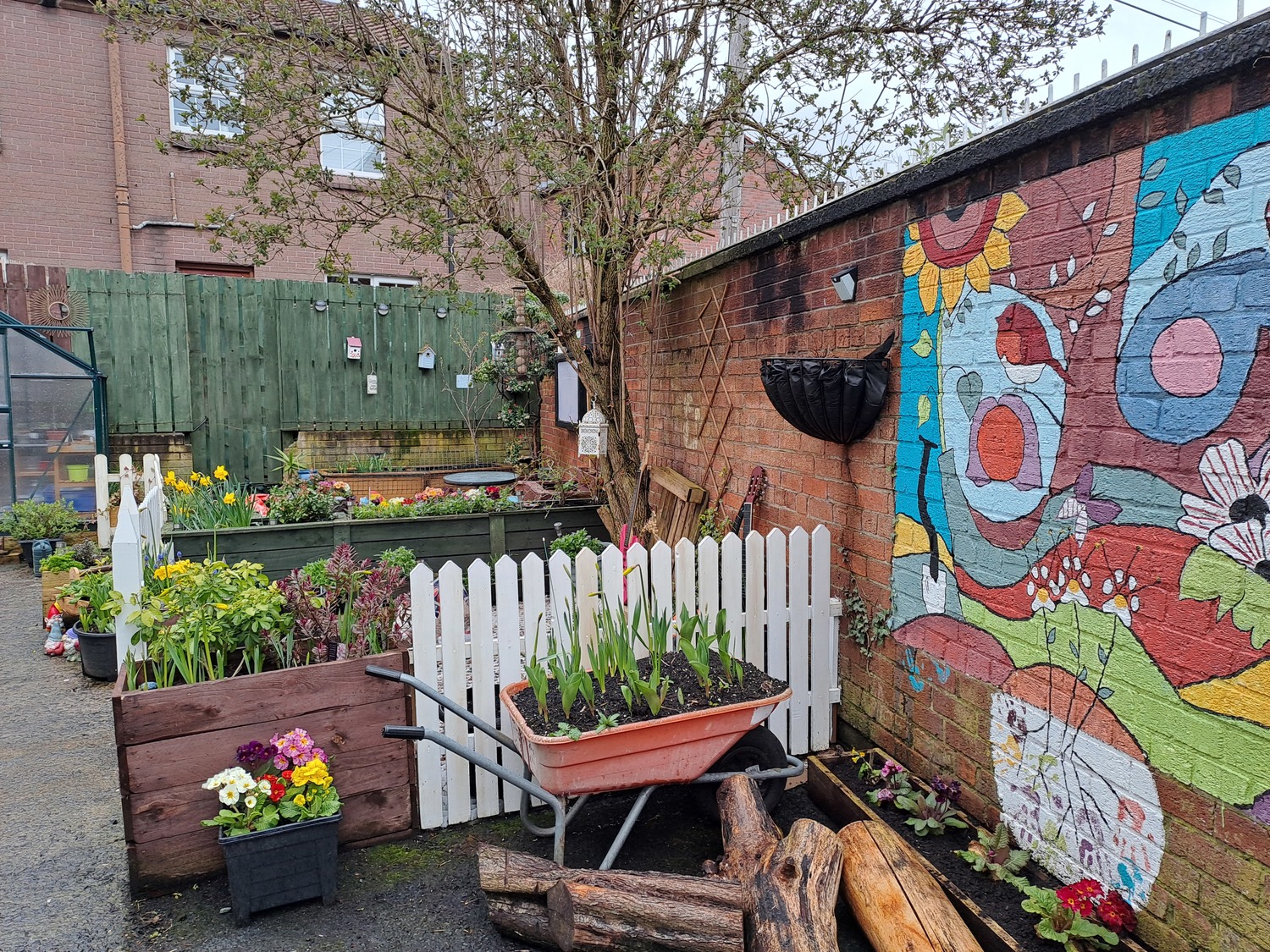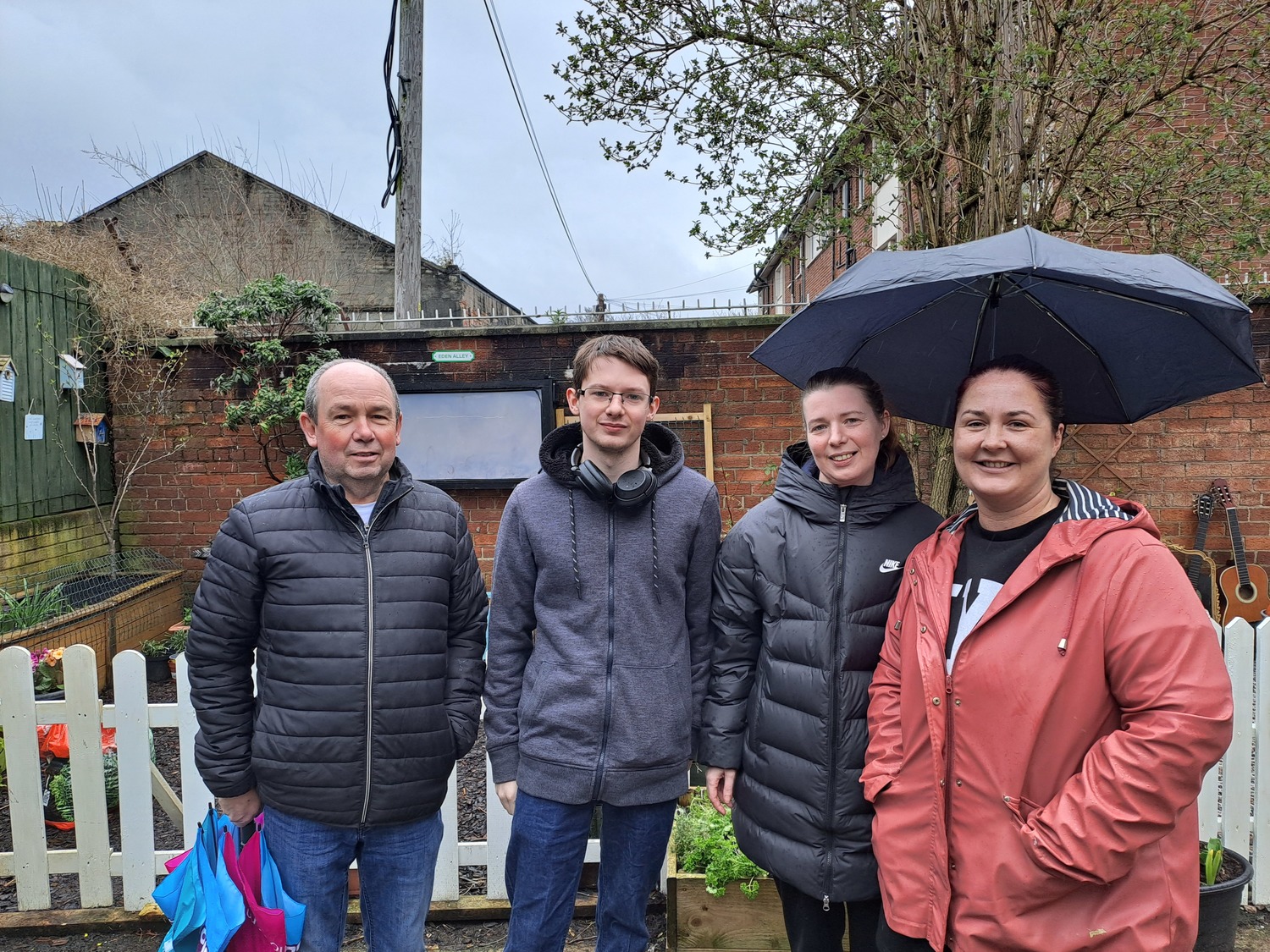
(L-R) Neighbours Marty McWilliams, Kevin Ruddy, Seana Seaward and Martina O’Toole at Marsden Gardens in north Belfast. Picture by Claire Simpson, The Detail
“It was just kind of normal,” she said. “You just stuck to your own area.”
She grew up in Ardoyne, a predominantly working-class nationalist area which saw some of the worst violence of the conflict and, around a decade ago, experienced sustained rioting around a flashpoint Twelfth of July march.
Ms O’Toole (40) later moved to Fortwilliam, an area where Catholics and Protestants lived side by side.
Aged 15 when the 1998 Good Friday Agreement was signed, she recalled that, just a few years before the accord, neighbours’ homes were burnt in sectarian violence and rioting.
“It was part of your growing up really,” she said.
Ms O’Toole now lives with her partner and three children in Marsden Gardens, a mixed area close to the large Waterworks public park and around half a mile from the predominantly loyalist Westland Estate.
During lockdown, she and several neighbours cleared an overgrown alley at the back of their terraced houses and transformed it into a community garden.
She said the garden has fostered better relationships between the two main communities.
“Last June, we had a load of pallets (from the garden) here sitting around the side and we needed rid of them,” she said.
“One (woman) from Westland came over and got them for the bonfire.
“Last week, we were looking for pallets and I was tempted to go down (to Westland) and ask if we could have some of theirs.”

A community garden created by neighbours at Marsden Gardens in north Belfast. Picture by Claire Simpson, The Detail
Statistics from the Northern Ireland Life and Times Survey, which aims to trace demographic and other changes in Northern Ireland, found that a majority of people - 87% according to the most recent figures taken in 2005 - believe that better relations between Protestants and Catholics will only come about through greater mixing between the communities.
Ms O’Toole’s friend and neighbour Seana Seaward (40) said relations between the two communities in the area had changed dramatically since the Agreement.
When she was a child, pupils avoided walking down certain streets in their school uniforms because strangers would be able to identify their religion.
“When we were younger, we were told the front part of the Waterworks is our side (nationalist) and then the back part was the other side (unionist),” she said.
“So we were always told ‘don’t go round the far side, don’t play on the swings around there’.”
She added: “It was annoying because the Protestant way was quicker and they had the better park.”
Now, when Ms Seaward takes her 11-year-old son to the park, children of all religions “just go off and play”.
Her neighbour Marty McWilliams (57) said when he went for job interviews as a young man “the first thing they asked you was ‘what school did you go to?’ “.
“And when you answered that question you knew how the interview was going to go,” he said.
Mr McWilliams said he recently warned his son not to walk through a predominantly loyalist area.
“He said to me ‘wise up Daddy, things aren’t like that any more’,” he said.
“We were always looking over our shoulders, looking for the next car coming up, the next black taxi.”

(L-R) Neighbours Marty McWilliams, Kevin Ruddy, Martina O’Toole and Seana Seaward at their community garden in north Belfast. Picture by Claire Simpson, The Detail
Demographic changes
Ms O’Toole’s eldest son, Kevin Ruddy (20), who was born a few years after the Agreement was signed, is studying engineering at Belfast Metropolitan College.
He has friends from across the community, including new migrants from India and China.
“I’ve a friend who’s Muslim. He’s fasting for Ramadan at the moment,” he said.
Ms Seaward said the demography of Marsden Gardens and surrounding streets is changing.
“We have Syrians living up the street, Romanians, refugees from all over,” she said.
“You see so many different types of people and from different cultural backgrounds as well.
“It makes it more normal than the old way of being normal if you know what I mean.”
Ms O’Toole, Ms Seaward and Mr McWilliams said an increase in hard drug use and suicide over the last 15 years have overtaken any concerns about sectarian violence.
“The drug thing - both sides are facing it,” Ms Seaward said.
One of Ms O’Toole’s brothers died from a heroin overdose several years ago. Mr McWilliams’s wife died by suicide several years ago.
Ms O’Toole said used needles are a regular sight on the streets, including outside schools.
“Now it’s just heroin, heroin, heroin,” she said.
She said drug use and suicide “stem from the Troubles”.
“It’s the trauma. It’s the PTSD side of it,” Ms O’Toole said.
“When things quiet down, what do you do with the stuff in your head? The easiest way is you take drugs, switch off, and escape from it all.”
She added: “With drugs it doesn’t matter what area you're from. It’s every area. It doesn't matter whether you're low income, middle, upper class, you know, it doesn't matter at all.”
The Good Friday Agreement was expected to bring about a ‘peace dividend’ of better economic prospects and opportunities for young people.
Ms O’Toole said as a teenager she “didn’t really understand the political side”.
“But I knew it was going to be something for the best - both communities working better together,” she said.
The neighbours said they felt job opportunities had increased following the Agreement but the area still needs more investment.
“We’re progressing but at a slow rate,” Ms O’Toole said.
“The money isn’t getting put into the area.”
Northern Ireland has had no functioning government for over a year amid rows over Brexit.
Ms O’Toole expressed huge frustration at the ongoing political stalemate. She said if the north is to progress, politics needed to move away from sectarian divisions.
“It’s gonna be the people versus the politicians rather than the green versus the orange,” she said.
 By
By